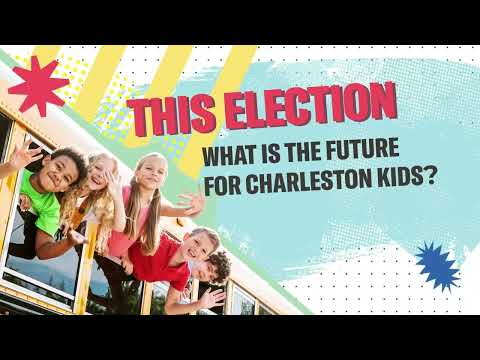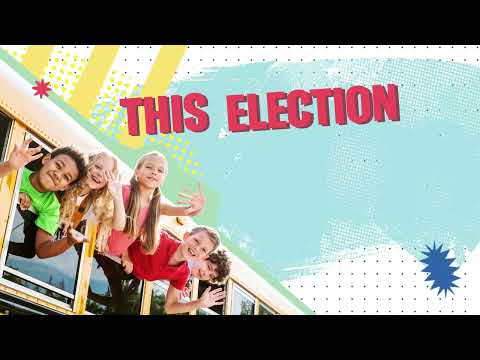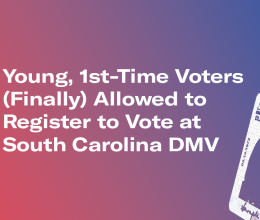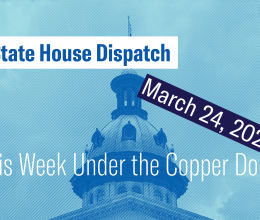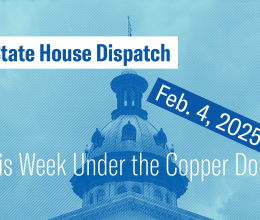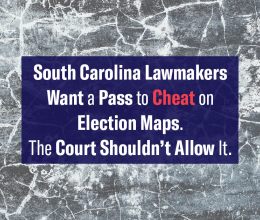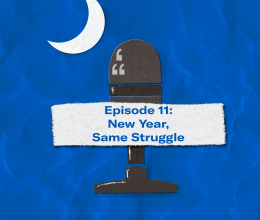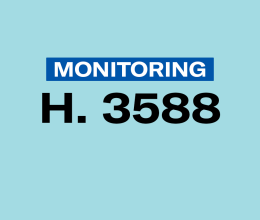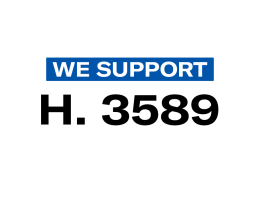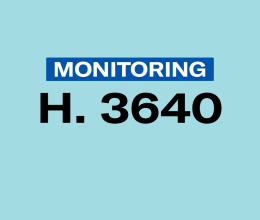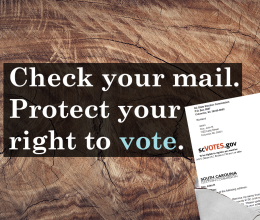
In less than a month, South Carolinians will go to the polls and vote in one of the most consequential elections in history.
All eyes will be watching what happens at the top of the ticket—the undoubtedly important question of who will be the next President of the United States. But what happens at the bottom of the ballot matters too and gets far less attention than it should.
That’s one of many reasons why the ACLU of South Carolina team is educating voters about an important down-ballot race: The Charleston County School Board.
Why the Charleston County School Board
Since the 2022 election ushered in a Moms for Liberty-endorsed majority to the Charleston County School Board, we’ve seen harmful attacks on public education. We’ve stood with our partners in opposition as the Moms for Liberty-backed school board members have:
- Voted to start all board meetings with Christian prayer.
- Forced the removal of trusted community members from the Health Advisory Committee that reviews sex education curriculum and makes recommendations.
- Hired, fired, and hired Superintendents without engaging with all board members or the public.
- Shifted to spending the bulk of meetings in executive session and held unannounced meetings to keep away other school board members and the public, violating the state’s open meetings law
- Introduced a classroom censorship policy, which would ban most conversations about sexual orientation or gender.
In short, it’s been a mess—and Charleston’s families and educators deserve better.
What the Candidates Told Us
When Charleston County voters cast their ballots, we want them to have trustworthy information about the candidates vying for their support. Unlike some of our partner organizations, we don’t endorse candidates at the ACLU, but we do try to learn about them, and we reach out to voters to share what we learn.
In August, we sent a questionnaire to all 10 candidates running in the 4 Charleston County School Board districts that are up for election this year. We asked them about book banning, classroom censorship, religious freedom, discipline, and other civil liberties issues that come up in our schools.
Half of the candidates responded. The other half won’t tell us what they think about some of the most pressing issues impacting education today. You can see all of the responses here.
Our Plan
We are using three strategies to help voters get the facts about these candidates.
One, we’re running digital ads on sites like YouTube, Facebook, and Netflix. These ads let people know about the candidates’ positions on an issue that’s important to us here at the ACLU: book banning and the freedom to read.
Two, we’re having conversations with voters on the phone and at their doors. With our volunteer team, we will remind voters that school board races are important—so they shouldn’t skip them when voting.
Three, we’re encouraging our supporters to attend a forum and hear directly from the candidates.
- Our friends at the League of Women Voters of the Charleston Area are hosting a forum on October 9.
- There’s a Lowcountry Candidate Fair hosted by the Carolinas LGBT+ Chamber of Commerce on October 13.
- On October 16, Movement 400 will host a forum to help folks get to know the school board candidates.
Going Forward
It’s an all-out sprint to Election Day. Reach out to us if you want to volunteer or get involved in these critical final weeks.
After the dust settles, we’ll consider the impact we made through this work and whether engaging electorally—at the school board level or beyond—makes sense for us here at the ACLU of South Carolina. Either way, we’re leaving it all on the field.
